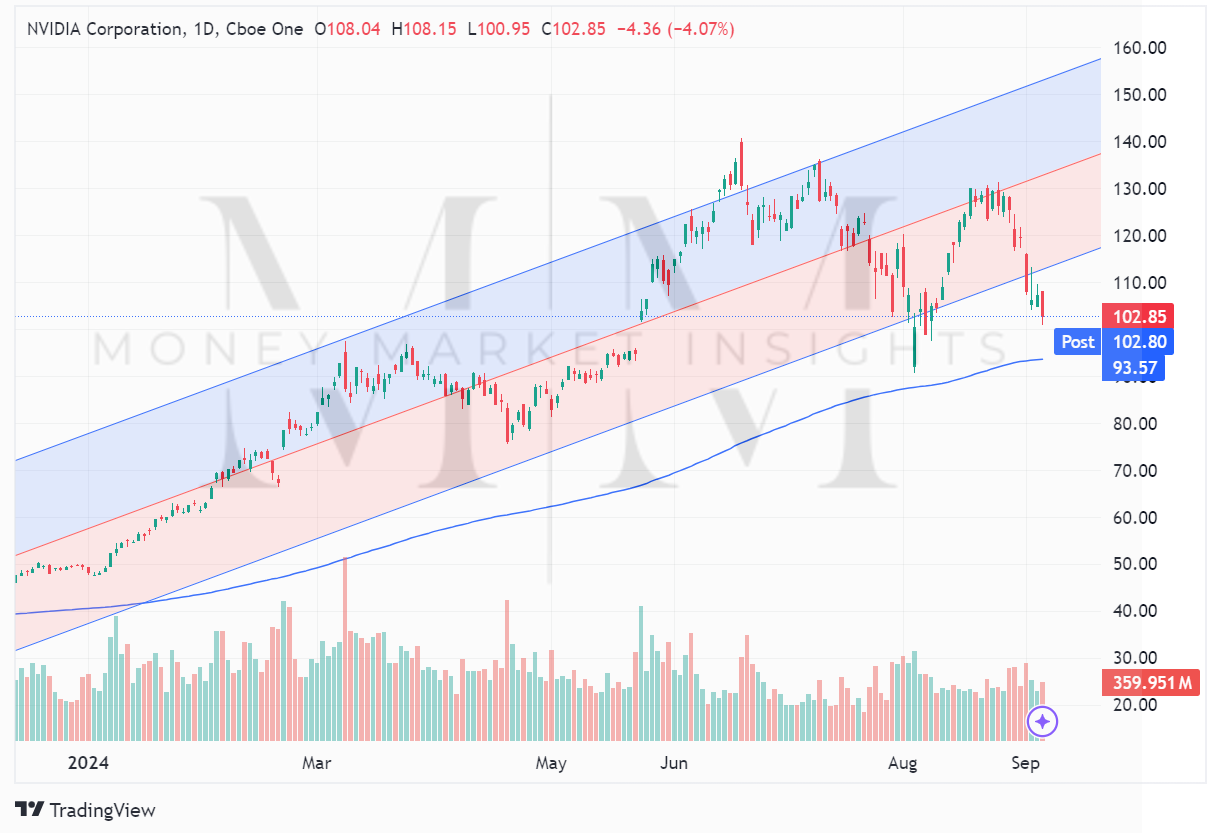Nvidia's Stock Dips Amid Broader Tech Sell-Off: What Does It Mean for Investors?
Nvidia NVDA 0.00%↑, a leading player in the tech sector, experienced a sharp decline in its stock price yesterday.
This drop came after the Bureau of Labor Statistics released a jobs report showing weaker-than-expected job growth in August. Only 142,000 jobs were added last month, falling short of the 161,000 jobs that analysts had expected. In addition, job growth figures for June and July were revised downward.
These disappointing job numbers led to concerns that the U.S. economy may be weakening faster than previously thought, causing a broad sell-off in tech stocks. As of early afternoon, the Nasdaq Composite was down 2.3%, and Nvidia's stock had fallen 4%, after an even steeper decline of 5.8% earlier in the day. The broader semiconductor sector also took a hit, with the iShares Semiconductor ETF dropping 4%.
What This Means for Nvidia
The recent drop adds to a challenging week for Nvidia. The stock already faced pressure on Tuesday due to rumors that the company was involved in a Department of Justice antitrust investigation, which Nvidia later confirmed was untrue.
Yesterday's decline suggests that Nvidia's stock is particularly sensitive to broader economic trends. Investors seem concerned that a potential recession or economic slowdown could hinder the growth of the artificial intelligence (AI) sector, which Nvidia heavily relies on. The company has invested significantly in developing advanced AI technologies, such as its data center GPU components, which are crucial for running complex AI models. If big tech companies and startups cut back on their AI investments due to economic uncertainty, it could impact Nvidia's business and its stock price.
Why This Could Be a Buying Opportunity
Despite the negative reaction to the jobs report, the economic outlook isn't entirely bleak. While there are signs of slowing growth, the U.S. unemployment rate remains relatively low at 4.2%. Additionally, many expect the Federal Reserve to cut interest rates later this month, which could help stimulate the economy and provide a boost to tech stocks like Nvidia.
Furthermore, Nvidia's business fundamentals remain strong. Even though the stock dipped after its recent earnings report, the company's growth remains impressive, and it plans to increase production of its new Blackwell platform in the fourth quarter, which is already seeing high demand.
Nvidia's biggest customers, including Microsoft, Alphabet (Google's parent company), and Meta Platforms (Facebook's parent company), have committed to investing heavily in AI infrastructure. These companies have significant cash reserves and are unlikely to scale back their AI spending due to short-term economic fluctuations. Therefore, it would take a substantial economic downturn to derail their investment plans, providing Nvidia some insulation from market volatility.
While Nvidia's stock may be down, there are several reasons to believe this could be a temporary dip rather than a long-term trend. The company remains a leader in AI technology, with strong demand for its products and a robust customer base. For investors who believe in the long-term potential of AI and Nvidia's role in it, this pullback might present a buying opportunity.
*Disclaimer: Not Financial Advice. Investors should conduct thorough research and seek professional advice before making any investment decisions.






